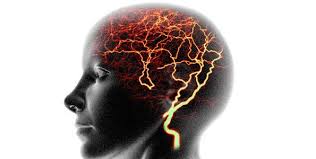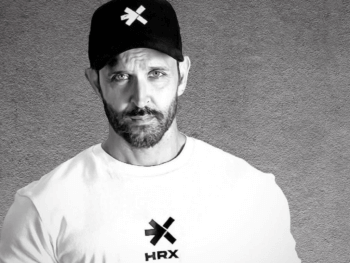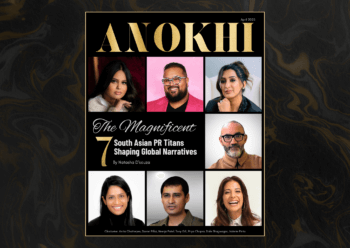
Epilepsy is a medical condition that needs to be discussed and understood. Here is one woman's journey that helps ensure that the cultural taboo surrounding this illness is broken.
Epilepsy. This is a word that many have heard and immediately associate with seizures. But what is epilepsy? Who can get it? How many people are affected? Are there any cures? There are many myths and stigmas.
To answer some of these questions let's start at the basics.
Epilepsy is a brain disorder that causes physical conditions when the brain changes how it works. The changes in the brain are due to electrical activity which causes the brain cell messages to either get crossed or not send out the correct messages.
Epilepsy can not be cured but can be managed through medication, diet and a change in lifestyle. These can only be achieved through awareness which will in turn lead to research, support and acceptance.
Myths and Stigmas
Unfortunately, there are many myths and stigmas attached to epilepsy especially within the South Asian community. There is a myth that epilepsy, also known as mirgi, is due to sins committed in a past life. Another myth is that it is contagious. There is a stigma associated with having epilepsy that the person(s) diagnosed are crazy, or lesser of a person(s) due to this disorder. Also from my personal experience I know it is not spoken of as people will put the blame on me or my family for having epilepsy. And this is why I chose to write about my experience.

Photo Credit: www.alternet.org
My Personal Story
Upon reflecting, I realized that I have never taken time to look back on what brought me to this point. It's emotional for me to see how lonely a journey it can be.
Approximately seven to eight years ago I was out with my cousin (who I also consider my best friend) and we were having a great time. One minute we were laughing and the next minute I was lying on a stretcher surrounded by paramedics with people hovering nearby. I was being asked everyday questions such as my name, the date, the city, what year it was and I had no answer.
I was able to speak but I didn't know the answers to these questions that they were askig me. They kept asking me the questions over the course of 10 minutes while monitoring my pulse and blood pressure. I was getting quite upset until I started to remember my name. I was so elated at remembering something so simple. I then slowly was able to answer their questions. I was still confused as to why I was on a stretcher in the first place. I refused to go to the hospital and signed a refusal paper. When I got home I realized that I had bitten my tongue so hard that I was not able to talk properly. I was also very tired. I slept on and off for the next two days and had little or no energy. In the past, I had a few fainting spells so I though I should let my doctor know.
My doctor then set me on the course of various scans and test. I went for an MRI and my life changed. After the MRI I was preparing to leave when the technician asked me to wait. She then took me to a hospital room where I waited some more.
After some time a neurologist came in and introduced herself to me. "Angeli," she said. "I have something to tell you". At this point my heart was pounding and I didn’t know what to expect. She continued “please just relax but you’ve been diagnosed with epilepsy.” At first I was quiet and frozen, then I broke down and just cried. I didn’t know what it was but I knew that it was serious. She got me pamphlet and some literature but to be honest there was not much information for me. It was mostly for children. She wrote me a prescription and then I left.
I got my medication and went home. I cried and cried. Once my tears were spent I knew that I to find out what I was up against. I have gotten through some tough times in life and now was not a time to wallow. I didn’t have a choice. I was on my own. I went on the internet and learned what I could. I then went into denial mode. I read all the symptoms and let myself believe that I was not having those symptoms. At this point, I still hadn’t shared my diagnoisis with anyone. I was ashamed and felt that all of this was my fault. Less than two weeks later I had another seizure. Clearly the medication that was prescribed to me was not working. This led to a year of changing and tweaking medications in order to find the right dosage.
A week after I was diagnosed, I decided to tell my parents. This was not going to be easy. I started with my mother. She was as much in the dark as I had been and she just said "okay." That was it. Then she said "take your medication and let me know." At the time she was not aware of the seriousness of this condition. I think it truly didn’t really register with her until the time that I had a seizure in front of her and she did not know what to do.
My stepfather listens and supports my mother through this as it is still hard on her. My father, is old school South Asian and it's hard for him to understand. When I told him about it, his answer was that back in India he saw girls had mirgi and they got them married and now they are okay.

Photo Credit: www.pharmacytimes.com
Tackling The Taboo
At first my parents didn't want me to tell anyone about my condition It was the classic “what will people say” syndrome. I just wanted to talk to someone, especially someone within the South Asian Community about this. I could not find a single support group anywhere. As I started researching, I realized that it's not only the South Asian community, but epilepsy in general is not really talked about and there is not much awareness. This is the reason that I started the Facebook group S.A.N.E (South Asian Network For Epilepsy) in Toronto. The group now has over 400 members and I post articles on a regular basis about epilepsy. Recently I've been asked to work with Epilepsy Peel Halton Hamilton and we're working on putting an event together.
My life has changed quite dramatically since I was diagnosed with epilepsy. The biggest change is that I had to give up my license. The majority of my life I drove and my jobs were related to driving. I now have to rely on others or find alternative modes of transportation. However I do not do buses (just kidding).
I also have to look at things in my life from a safety standpoint. I cannot live in a house with stairs because (and this has happened to me) if I have a seizure while going down the stairs I can injure myself. I cannot use a hot tub. I have to avoid hot baths and super hot showers. I can't go on rides at the CNE for fear of seizures. I don’t drink any alcohol and I have had to change my diet.
I listen to what my body is saying now. If I’m tired, I nap; if I’m craving sugar, I have something sweet. At home, I need to make sure that there are no obstructions. It's almost like child proofing your home.
What I’ve learned since being diagnosed is that we need to listen to what our bodies are saying. I have stopped taking things for granted as life can change at the drop of a hat. I know that epilesy is a disorder but it does not make me a lesser person. I am still "me." I still have the same dreams and passion for life. I may have some limitations now but it won’t stop me. To all of you out there who might feel that you are alone, you are not. We need to talk about this openly and share our joys and sorrow.
My message: “Never give up and hold your heads up high. We may have Epilepsy but it doesn’t have us.”
For epilepsy support groups please see below:
U.K.: Epilepsy Action: www.epilepsy.org.uk
U.S.A.: Epilepsy Foundation http://www.epilepsy.com/
Canada: Epilepsy Canada http://www.epilepsy.ca/
India: Epilepsy India http://www.epilepsyindia.org
Pakistan: Epilepsy Foundation Pakistan (Facebook)
Sri Lanka: Health Education Bureau, MInistry of Health Sri Lanka
Bangladesh: International Bureau for Epilepsy
Main image photo credit: www.nation.com
Angeli Nanda
Author
Angeli Nanda is a logistics co-ordinator. She graduated from Humber College with her Business Administration emphasis on Marketing. Over the years she has accumulated various certifications, she was a licensed taxi driver, and smart serve certified as well as received her certification i...














































































































